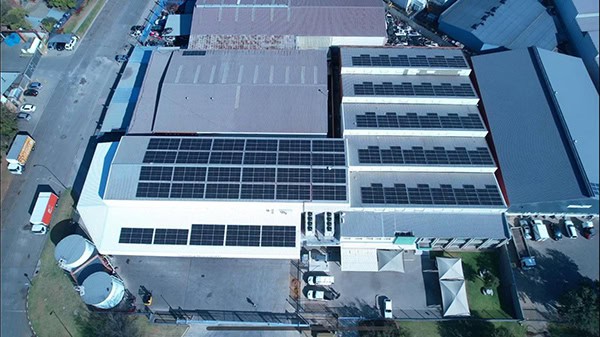Tru-Cape Fruit Marketing is making significant progress towards its ambitious goal of reducing carbon emissions by 50% by 2030 and reaching net zero by 2050.
“These objectives will help us, as an agricultural company, to minimise our environmental footprint, which is the responsible course of action and the right thing to do,” states Roelf Pienaar, managing director of Tru-Cape, a leading apple and pear exporter.
The company is working on its Emission Reduction Strategy, an initiative increasingly valued by clients in Europe and the United Kingdom.
“The movement towards environmental responsibility is gaining momentum, and Tru-Cape is committed to contributing to this cause. We are responsible for adhering to current climate science and prepare for regulation in the future. We should also support our farmers and producers in this regard.”
The scope of Tru-Cape’s carbon reduction strategy encompasses all aspects of the business, from electricity usage to the distribution of fruit globally. According to Tru-Cape’s 2020 baseline carbon footprint, which serves as a reference for the initiative, most of the fruit exporter’s emissions result from refrigeration systems, stationary fuel combustion, and the reliance on grid-sourced power to power offices and warehouses.
Solar energy
“With our solar projects in Cape Town and Johannesburg coming online by the end of the year, we estimate a production of 573,114 kWh, leading to a projected reduction of 573 metric tonnes of CO2e. Our solar projects can potentially reduce our scope one and two emissions by approximately 28%, and additional energy-saving practices could further lower this number,” says Stephen Jordaan, coordinator of Tru-Cape’s sustainability committee.
Roelf explains that in addition to the environmental advantages, the adoption of solar energy offers financial benefits, ultimately benefiting their producers and clients.
“We are exploring all possible avenues to minimise energy consumption and expenses. One option is to turn off cooling systems at specific times during transport. Research has shown this will not compromise the cold chain or the quality of our fruit but will result in decreased energy consumption.”
Reducing refrigerant emissions
Another major step, as part of tackling scope one emissions, will be to reduce fugitive refrigerant emissions in their cooling systems for fruit storage by switching from a hydrofluorocarbon blend (R507) to a system with less global warming potential.
“R507 has been identified as a major source of emissions due to its high global warming potential (GWP). To meet our 2030 targets, we must explore alternatives. We are investigating an ammonia-based system with zero GWP and emissions, which seems promising,” Stephen said.
Furthermore, Tru-Cape is considering implementing a sensor-based refrigerant leak detection system. The early detection of leaks can prevent excessive loss of refrigerant and reduce the frequency of refills needed, thereby significantly lowering their carbon footprint.
Preparing for the future
The company has also set other sustainability targets, including completing the carbon footprint reports for the 2021-2023 seasons, implementing an efficient employee engagement and training system, and applying a waste management and circular economy system by the end of the current season.
“Our major markets are already on a green journey. In the future, we expect these to be compulsory requirements and measures. It takes time to implement sustainability measures; therefore, we believe it is better to lead than be led,” elaborates Stephen.
Roelf confirms clients in specific markets increasingly emphasise environmental, social, and governance factors.
“Although we are only starting on this path, the initial response from retail has been highly favourable. While sharing our carbon footprint, reduction targets, and our roadmap for reducing emissions opens us up to scrutiny, we believe it will encourage industry-wide action and add to the collective knowledge and resources available for those on a similar journey.”
In the future, updates on Tru-Cape’s progress, challenges, and solutions will be published on www.tru-cape.com
